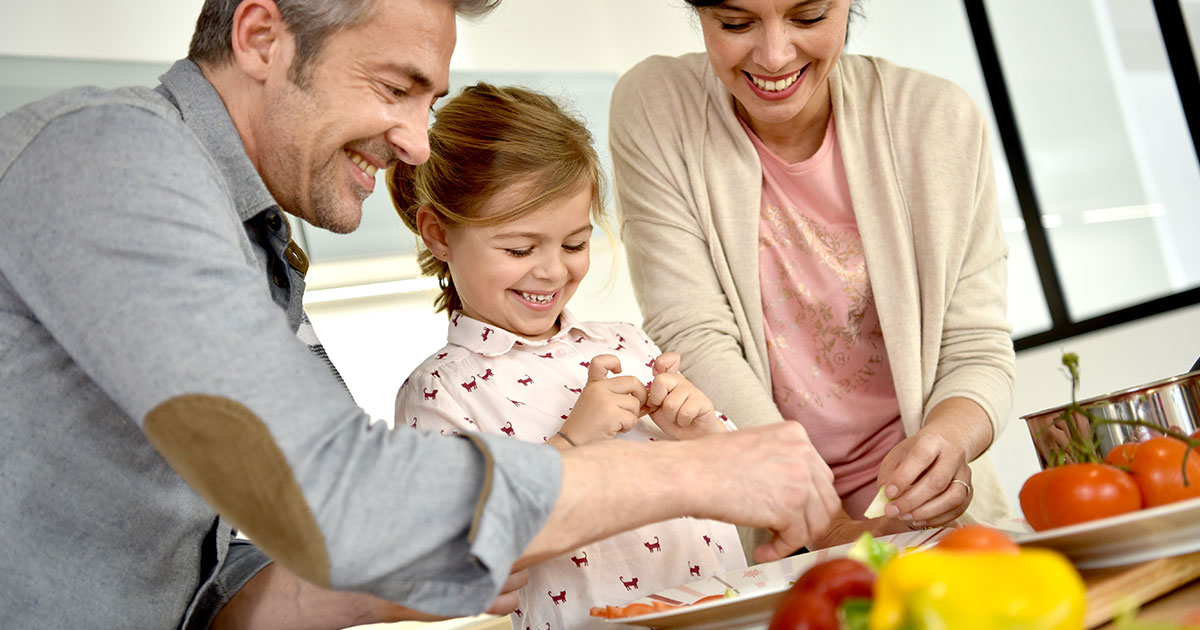 Getting your kids involved in the kitchen is an excellent way to engage them in a hands-on learning experience. It’s not just about preparing food but also about teaching valuable life skills. These include understanding nutrition, developing fine motor skills, fostering responsibility, nurturing creativity, and much more. This comprehensive guide delves into practical and fun ways to involve your children in cooking, transforming meal preparation into a richly rewarding family activity.
Getting your kids involved in the kitchen is an excellent way to engage them in a hands-on learning experience. It’s not just about preparing food but also about teaching valuable life skills. These include understanding nutrition, developing fine motor skills, fostering responsibility, nurturing creativity, and much more. This comprehensive guide delves into practical and fun ways to involve your children in cooking, transforming meal preparation into a richly rewarding family activity.
The Joy and Educational Value of Cooking Together
Cooking with your children is more than a means to prepare dinner; it’s an opportunity to build lasting bonds and create treasured family memories. When kids participate in meal preparation, they learn crucial lessons about teamwork, responsibility, and the joy of creating something from scratch. This experience is invaluable in teaching them cooperation and sharing the joy of accomplishing a task.[1]
Making Cooking Fun and Interactive
To get kids interested in cooking, it’s essential to make the experience enjoyable and interactive. You could let them choose the menu once a week or pick a dinner theme, engaging their curiosity and excitement for food. Start with easy recipes like fruit salads, sandwiches, or smoothies to capture their interest and maintain their engagement.[1]
Sharing Family Recipes and Cultural Stories
Cooking together offers a chance to pass down family traditions and stories, enriching the experience and giving children a sense of their heritage. Whether it’s a secret ingredient in a cherished recipe or a funny anecdote from a family gathering, these moments create a deeper connection to their roots and food’s role.[1]
Teaching Teamwork and Cooperation in the Kitchen
Including children in different aspects of meal preparation teaches them the importance of working together. Assigning tasks appropriate to their age, such as washing vegetables for younger children or helping with chopping and cooking for older ones, helps them understand the value of contributing to family chores. This collaborative effort in the kitchen can enhance their understanding of teamwork and collective responsibility.[1]
Experiential Learning through Cooking
The kitchen is an ideal classroom for practical learning. Kids enhance their mathematical skills by measuring ingredients, and by following recipes, their reading abilities improve. They also learn scientific principles in real-life applications, like how heat changes the texture of eggs or the rising process of bread due to yeast. These experiences make learning tangible and enjoyable.[2]
Boosting Confidence and Encouraging Creativity
Completing a cooking task can significantly boost a child’s confidence. They learn that they can contribute meaningfully to the family. Encouraging them to experiment with flavors or to decorate dishes in their own style fosters creativity and a sense of autonomy.[1,2]
Understanding Nutrition and Promoting Healthy Eating
Involving kids in cooking is an excellent way to teach them about nutrition. Discussions about the benefits of different foods, balanced meals, and the necessity of various nutrients help children make healthier food choices and understand the significance of eating fresh, whole foods.[1]
Developing Skills for Life Through Cooking
When children participate in cooking, they develop critical skills that will benefit them throughout life. The kitchen becomes a vibrant workshop where practical skills are honed and cognitive abilities are enhanced.[2]
Enhancing Fine Motor Skills and Dexterity
Cooking involves various movements that are beneficial for developing children’s fine motor skills.[2] Tasks like mixing batter, rolling dough, or using cookie cutters are fun and essential for improving hand-eye coordination and dexterity. These activities are crucial for young children, aiding their overall motor development.[2]
Applying Academic Skills in Real-World Scenarios
The kitchen is a natural extension of the classroom. Measuring ingredients helps reinforce math skills such as counting, weighing, and understanding fractions. Reading recipes enhances literacy and comprehension abilities. Additionally, cooking is a practical demonstration of scientific concepts, such as chemical reactions in baking or the changing states of matter.[2]
Fostering Problem-Solving and Critical Thinking Skills
Cooking can be unpredictable; when things don’t go as planned, it offers children a chance to think critically and solve problems. Deciding how to alter a recipe or substitute an ingredient fosters innovative thinking and adaptability. This aspect of cooking encourages children to approach challenges flexibly and with an open mind.[1]
Teaching Nutrition and Healthy Choices
As children learn about cooking, they also become familiar with their ingredients. This is an ideal opportunity to discuss the nutritional value of different foods, the importance of a balanced diet, and the effects of food on our bodies. This education is a hands-on way for them to learn about making healthier food choices and understanding the origins and benefits of different foods.[1]
Cultivating Confidence and a Sense of Achievement
Each time children successfully prepare a dish, they experience a sense of achievement, which is vital for their self-esteem. Cooking also instills a sense of independence and self-reliance, showing them that they can contribute meaningfully to family life. This sense of accomplishment boosts their self-confidence and encourages them to explore and try new tasks, both in and out of the kitchen.[1,2]
Fostering Responsibility and Independence
Cooking with children is an excellent way to teach them about responsibility and to nurture their independence. Assigning them tasks like gathering ingredients before cooking or cleaning up after a meal, while simple, helps them understand the importance of playing their part in a collective effort. These responsibilities, matched with their age and skill level, promote a sense of ownership and pride in their contributions.[1]
Encouraging Independent Decision Making
As children grow more comfortable in the kitchen, allowing them to make certain decisions can be empowering. For example, they could choose the vegetables for a salad or decide how to season a dish. This not only boosts their confidence but also enhances their decision-making skills. It’s about giving them a safe space to experiment and learn from their experiences, fostering their independence and critical thinking.[1]
Learning to Manage Time and Organize Tasks
Cooking also requires planning and time management, from prepping ingredients to timing the different components of a meal. Involve your children in these aspects to teach them valuable organizational and time management skills. Learning to manage time effectively and organize tasks systematically is a critical life skill extending far beyond the kitchen.[1]
Nutrition Education and the Importance of Whole Foods
One of the tastiest side effects of fun cooking with your kids is educating them about nutrition and the importance of whole foods in their diet. Explaining the colorful power of different ingredients, the superhero skills of various fruits and vegetables, and playfully comparing real food champions to processed pretenders are all essential lessons. This knowledge empowers them to choose wisely and builds a foundation for lifelong healthy eating habits, proving that “Fun Cooking” really does fuel healthy bodies and happy minds![1]
Summary
Transform your kitchen into a vibrant fun cooking hub where you and your little sous chefs embark on an enriching, skill-building journey that extends far beyond the meal itself. Beyond whipping up delicious dishes, you’ll share quality time, nurture essential life skills, and cultivate a love for wholesome, homemade food. So, don your aprons, get ready for giggles and learning, and embark on a culinary exploration that nourishes both body and soul!
References:
- Farmer, Nicole, and Elizabeth W Cotter. “Well-Being and Cooking Behavior: Using the Positive Emotion, Engagement, Relationships, Meaning, and Accomplishment (PERMA) Model as a Theoretical Framework.” Frontiers in psychology vol. 12 560578. 12 Apr. 2021, doi:10.3389/fpsyg.2021.560578
- Cleveland Clinic Medical. “Fine Motor Skills.” Cleveland Clinic, my.clevelandclinic.org/health/articles/25235-fine-motor-skills.




Leave a Reply
Your email is safe with us.